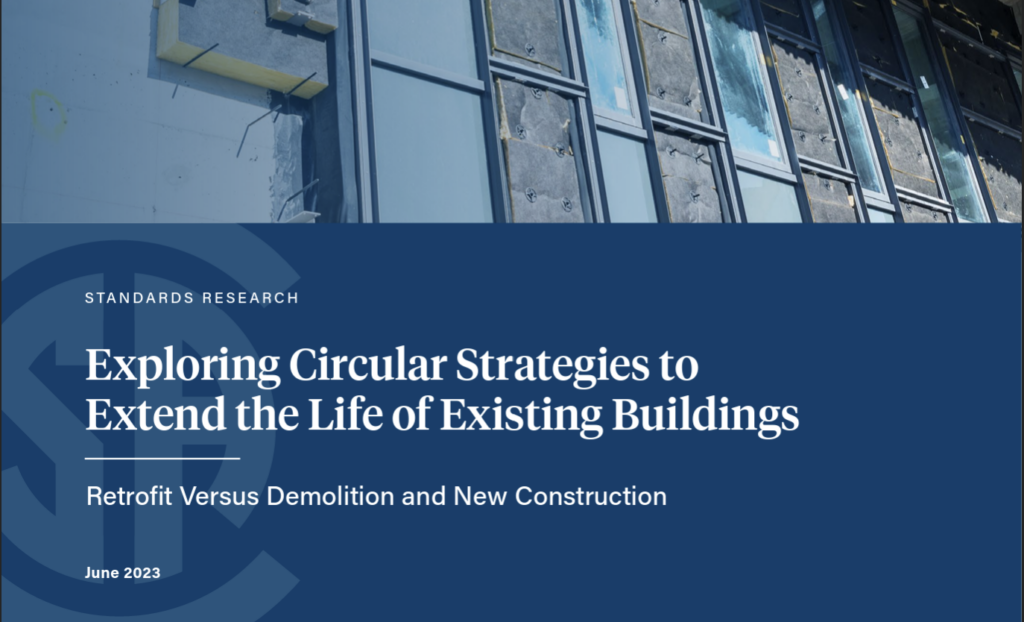In a new study released on behalf of CSA Group, Mantle Developments carried out a comparative analysis assessing the impacts of deep retrofits in comparison to demolition and construction in commercial office buildings across Canada.
In recent years, many real estate and asset management organizations have been setting near- and net-zero-carbon objectives. However, many will be challenged to meet these targets without significantly decarbonizing their existing buildings.
There will need to be a decision between demolishing and rebuilding many commercial buildings versus performing deep carbon retrofits. However, there needs to be more research comparing the full whole-life impact of these two options. Most assessments only focus on the potential of energy efficiency-driven operational carbon reductions. On the other hand, whole-life cycle carbon emission assessments consider both the operational and embodied carbon emissions of building projects. Embodied carbon emissions include those resulting from the manufacturing, transportation, installation, maintenance, and disposal of building materials.
This study aims to inform the commercial real estate (CRE) sector about the whole-life carbon impacts of extending building life – a critical circular economy practice. This study also examines gaps in the research, guidelines, standards, and data access and standardization. Importantly, it also provides tools that could help inform decisions about whether to demolish and rebuild or retrofit new commercial office buildings.
For access to the full study and its findings, click here.

